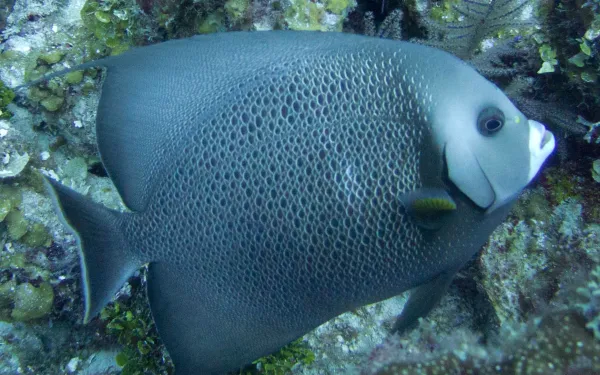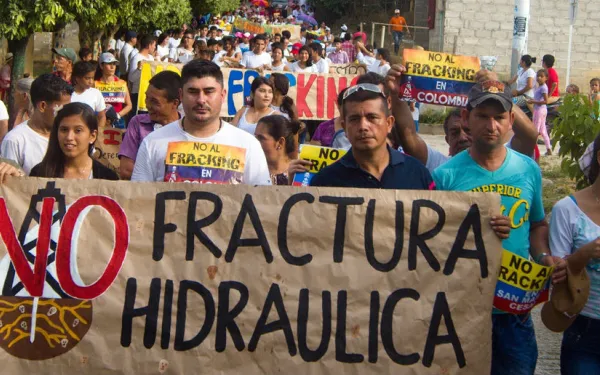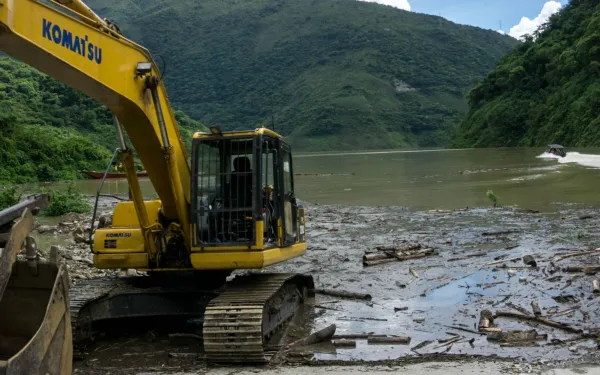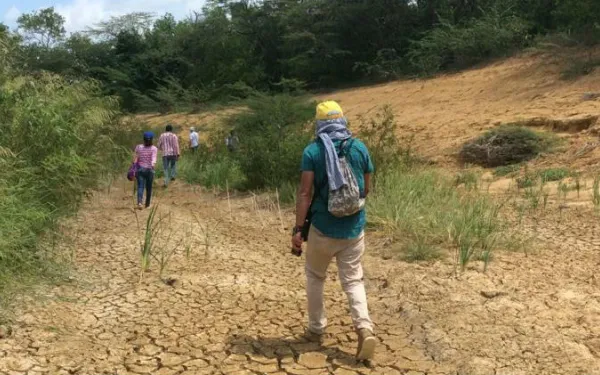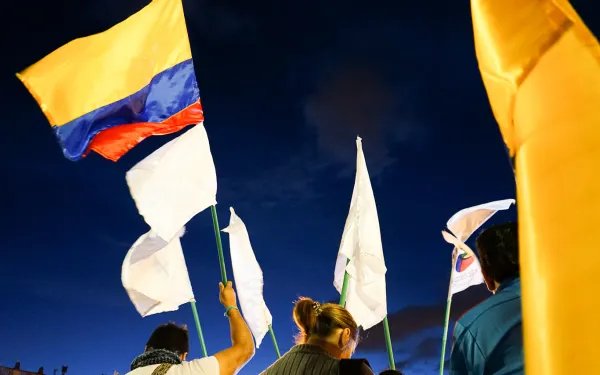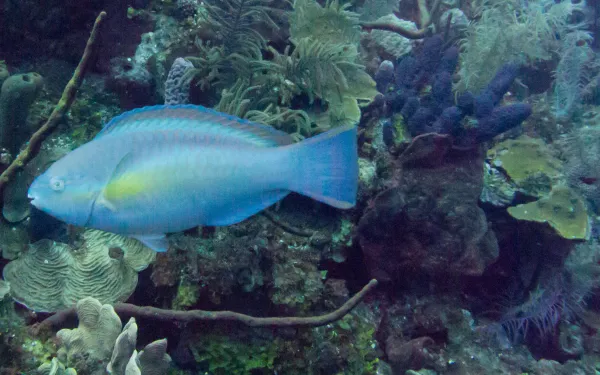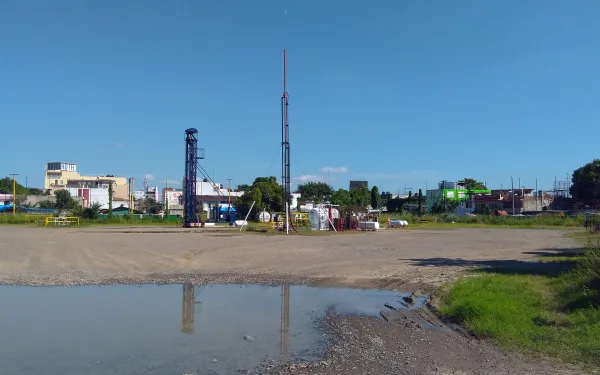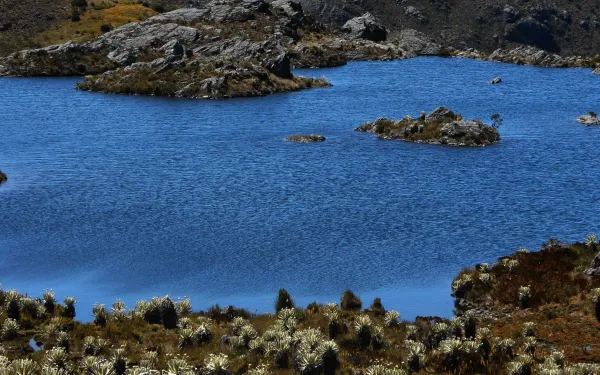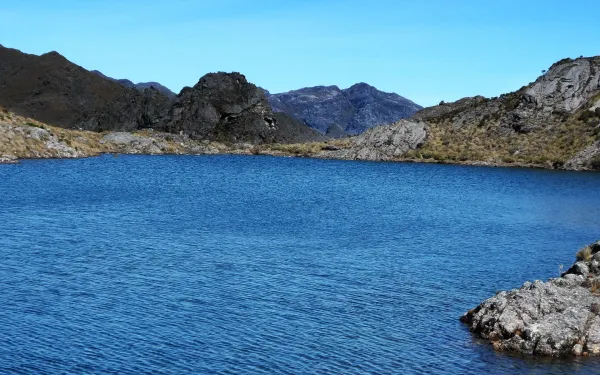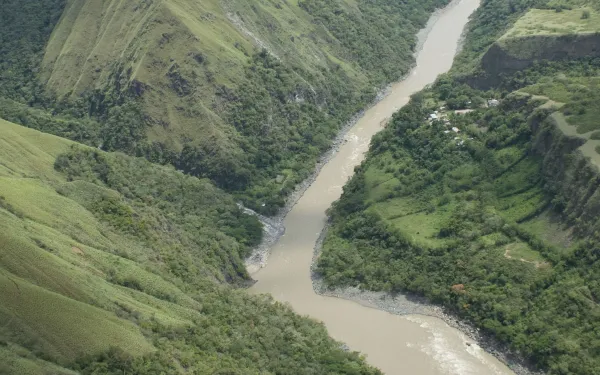
Inter-American Development Bank to investigate Ituango hydroelectric project
Washington D.C. In a historic decision, the Board of Executive Directors of the Inter-American Development Bank (IDB) approved an international investigation of the Bank’s private lending arm, IDB Invest, for its investment in the Ituango hydroelectric project. Located in the department of Antioquia, the Ituango dam has had a devastating impact on thousands of people across four departments and 27 municipalities in Colombia. The investigation’s main objective will be to determine whether—when financing this megaproject in a region of Colombia that continues to be affected by high levels of violence and resurgent armed conflict—the Bank complied with the social and environmental standards that it is obligated to uphold. The investigation will also examine whether any non-compliance by the Bank is connected to the serious harm that has been sustained by affected communities. “As those who have been affected by the Ituango dam, we demand that the investigation be rigorous and independent,” declared Isabel Zuleta, spokesperson for Movimiento Ríos Vivos in Colombia, which represents the affected communities. “For more than a decade, our communities have denounced the serious problems that the project has caused. These problems have been further exacerbated by the multiple emergencies that have occurred since 2018 and that continue to this day. We hope that, with this international investigation, the voices of victims and opponents of the project will finally be heard.” The investigation originated in a complaint filed by 477 people affected by the Ituango dam project. In the complaint, the affected communities—which are represented by Movimiento Ríos Vivos—emphasize that the Bank’s own policies require that the projects it finances must be sustainable, participatory, and in conformity with national legislation. In the case of the Ituango dam, none of this has happened. In the complaint, the communities indicate that the project lacked an adequate environmental impact assessment and that it did not allow for the participation of communities or provide access to information. They emphasize that the project has been advanced in a context marked by human rights violations, the disproportionate use of force, and increasing violence against people who defend their land and water. They also point out the pattern of discrimination faced by communities for deciding to oppose the project, as well as by women affected by the project. As the complaint lays out, all of this contradicts the social and environmental standards that the IDB must apply to its investments. Further, the complaint was filed in the wake of a humanitarian crisis that endangered the lives of thousands of people in the area surrounding the dam’s construction site. The crisis began after two of the dam’s diversion tunnels were blocked with cement, when a third tunnel became obstructed and the river’s flow increased dramatically. The resulting landslides and flooding forced thousands of people to be evacuated from their homes in a poorly planned, ad hoc manner, and many remain displaced to this day. No other development project in Colombia has caused a humanitarian crisis of this magnitude. This crisis reveals the inadequacy of both the impact assessment and the environmental regulation of the project, which—despite these deficiencies—was nevertheless approved. The state of emergency in the area affected by the crisis has yet to be lifted, and neither the government nor the regulatory agencies in Colombia have ruled out the possibility that the dam could collapse altogether. Even in this critical context, the affected communities sought to engage in a process of dialogue and dispute resolution with the company behind the dam project, which would have been facilitated by the IDB’s accountability mechanism. However, the company refused to participate in such a dialogue. For this reason, as the next step in the process following from the complaint, the accountability mechanism recommended this investigation. The communities affected by the Ituango dam, who live in the river basin of the Cauca River and its tributaries, are accompanied in the complaint process by the Center for International Environmental Law (CIEL), the Interamerican Association for Environmental Defense (AIDA), and International Accountability Project (IAP). The Ituango dam is expected to be the largest hydropower plant in Colombia, capable of generating 2,400 MW of electricity. Although the dam’s 79-kilometer-long reservoir was filled nearly two years ago, however, the dam has yet to generate any electricity. Moreover, the project has flooded 4,500 hectares without first removing the area’s vegetation, which is now generating large quantities of methane, a greenhouse gas. This flooding was undertaken even before the dam structure itself was completed and without informing, relocating, or compensating communities in the impacted area. IDB Invest has invested millions of dollars in the project and facilitated an additional billion-dollar investment in the project by other international banks. These investments have been maintained despite the grave crisis caused by the project. press contacts: Isabel Zuleta, Movimiento Ríos Vivos, [email protected] (Spanish only) Carla García Zendejas, Center for International Environmental Law, [email protected] Victor Quintanilla, Interamerican Association for Environmental Defense, [email protected] Alexandre Sampaio, International Accountability Project, [email protected] Note for editors: The investigation will be conducted by the Independent Consultation and Investigation Mechanism (MICI) of the Inter-American Development Bank. As an international accountability mechanism, the MICI addresses complaints from people and communities affected by IDB-funded development projects. The investigation will be carried out within a maximum period of nine months, in light of the high complexity of the case. Among the aspects of the project that will be investigated are the following: Whether the area of influence was adequately assessed and the affected population properly identified; The heightened levels of conflict and insecurity in the area surrounding the dam, and its differentiated impacts on women; The participation of communities, which—in the opinion of the communities themselves—has been seriously lacking; The relationship between the project and the damage caused; The deficiencies in the project’s resettlement plans and supposed compensation; The assessment of the risk of disasters, and access to information about these risks.
Read more
